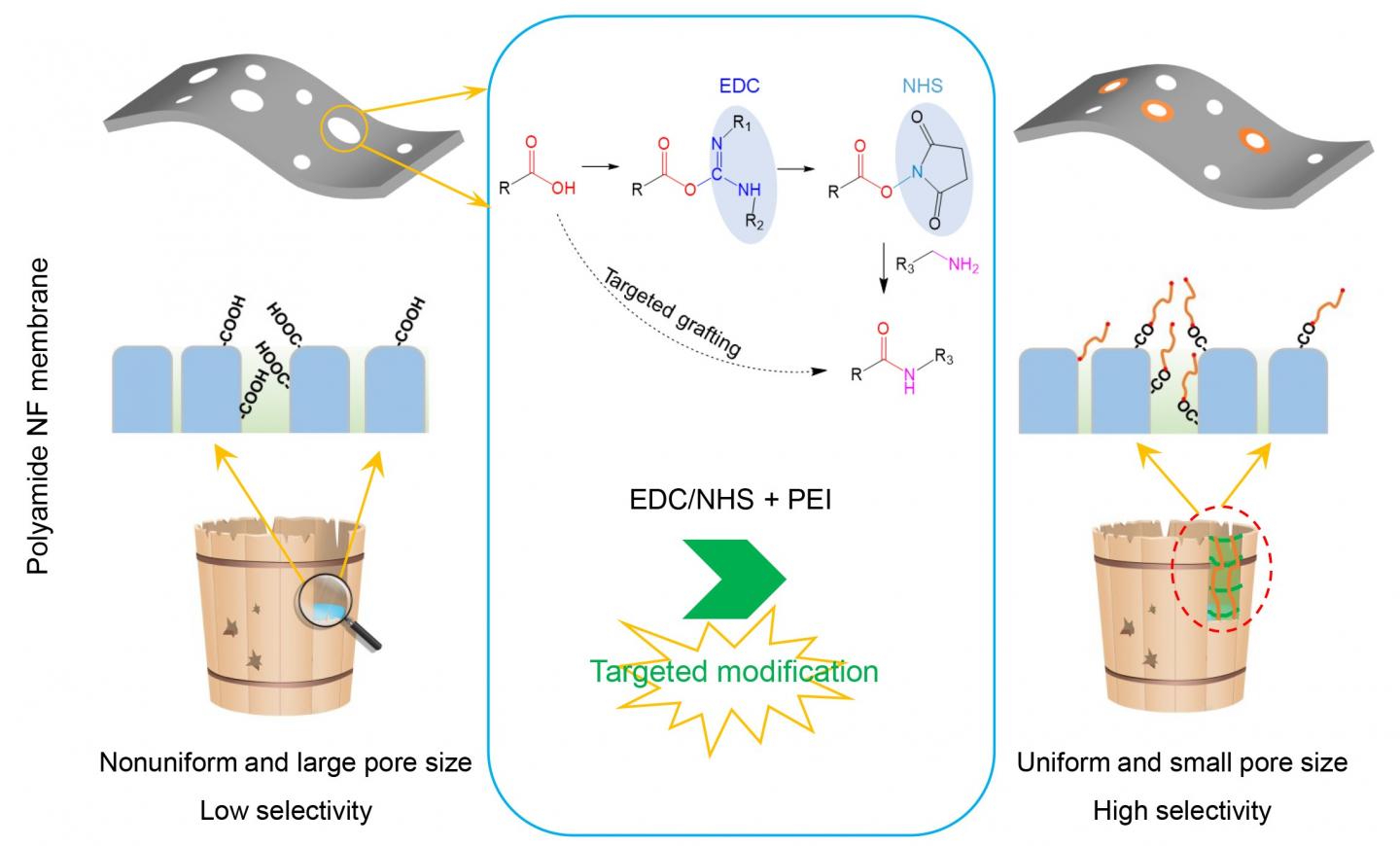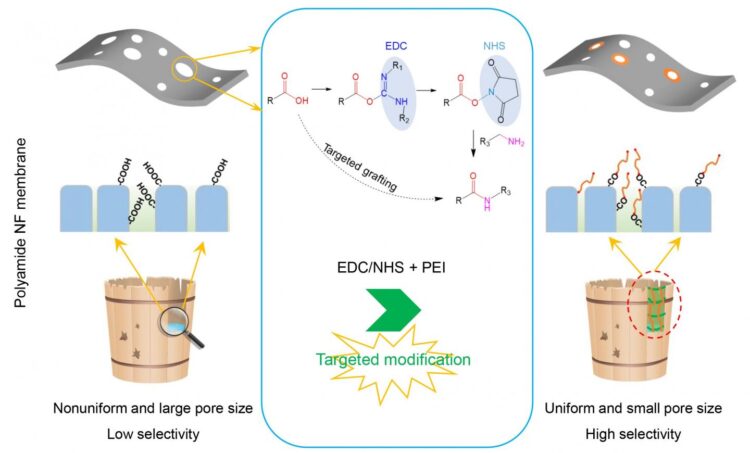
Credit: WANG Jingyu
Recently, a research group led by Prof. WAN Yinhua from the Institute of Process Engineering (IPE) of the Chinese Academy of Sciences developed a novel targeted modification strategy to improve the separation selectivity of polyamide NF membranes.
The study was published in Journal of Membrane Science on March 10.
The low selectivity of commercial nanofiltration (NF) membranes to monosaccharides and monovalent salts is mainly due to the nonuniform pore size distribution and strong electronegativity.
Targeted modification can regulate the pore size distribution and electronegativity of polyamide NF membranes, and thus improve the separation selectivity.
In the strategy, carboxyl groups (-COOH) on the surface are activated by N-(3-Dimethylaminopropyl)-N’-ethyl carbodiimide (EDC) and N-Hydroxy succinimide (NHS), and subsequently grafted onto monomer or polymer containing amino groups (-NH2) for more precise separation.
The novel targeted modification strategy reduced the effective mean pore size while maintaining the porosity of the NF membrane, due to pore segmentation. This resulted in a remarkable improvement in glucose/fructose rejection (from 67.96% to 84.14%) and separation factor (from 2.20 to 6.78), with only a 4.70% permeability loss.
“The outcome of this work not only improves the separation efficiency of small organic and inorganic salts by NF, but also provides a new perspective in regulating pore size distribution and surface charge of NF membranes for precisely separating small molecules,” said Prof. LUO Jianquan from IPE, the corresponding author of the study.
The modified membrane also maintained separation performance in crossflow filtration and after alkaline cleaning, which outperformed the pristine NF membrane and those modified by uniform coating and simple physical adsorption.
###
Media Contact
LI Xiangyu
[email protected]
Related Journal Article
http://dx.





